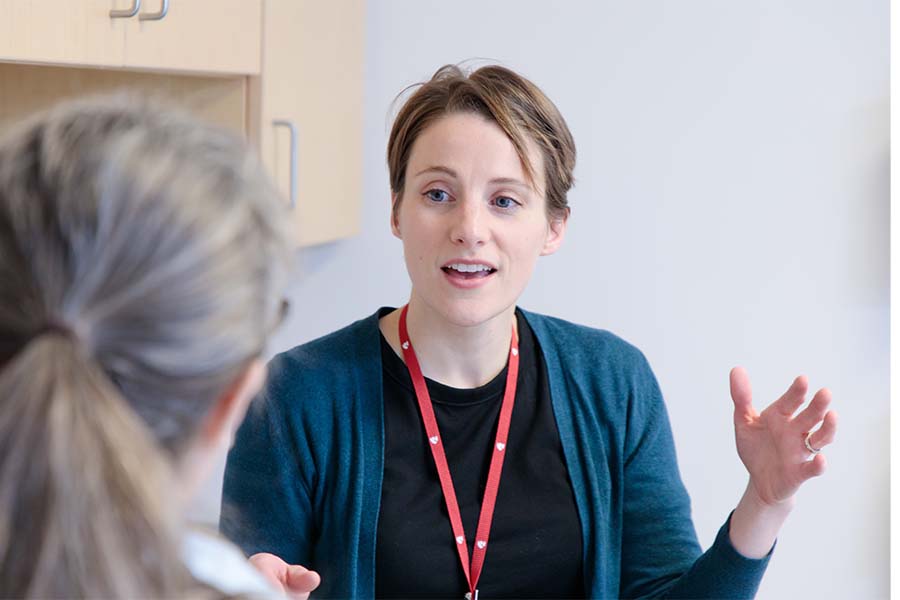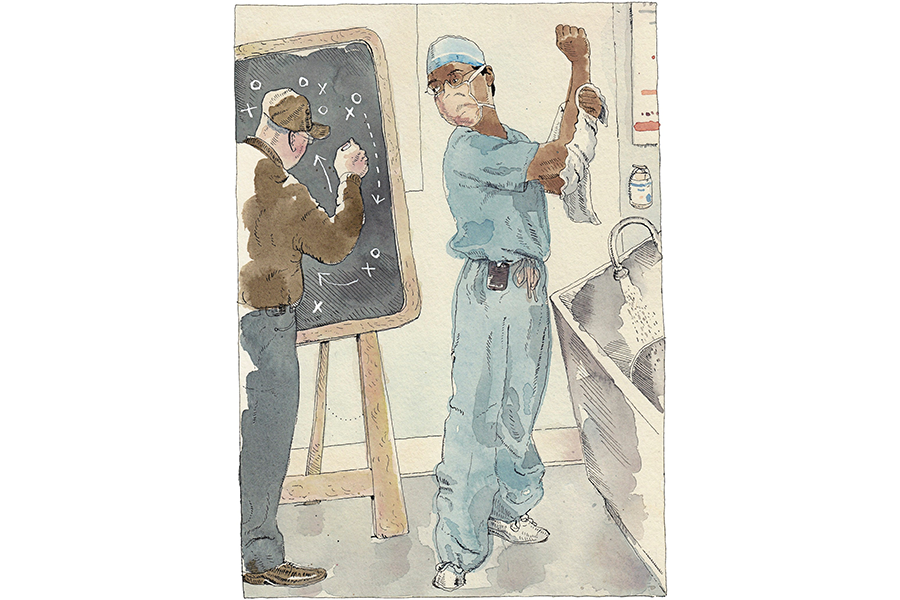Coaching

Interested in being coached? Learn more about what coaching is and if it is right for you.
Discover Coaching
Creative Coaching Program
Learn more about the faculty coaching program at UNMC.
Coaching Self-Assessments
A list of assessments and questionnaires commonly used in coaching.
Coach Directory
A directory of UNMC's trained faculty coaches.
Coaching Resources
Additional tools and resources to educate on coaching.
Coaching Overview
Coaching is a creative, generative, developmental process that is facilitated by a partnership between a coach and faculty member. Through coaching, faculty members shape their own individualized plan based on their personal professional goals.
Coaching maximizes personal and professional awareness and growth. It enhances faculty members' performance by assessing and mobilizing strengths and strategizing experiences to help them reach their full potential.
Coaches have specialized training to guide people in any field toward achieving their own identified goals. A coaching relationship is not dependent on profession-specific expertise, rather the coach acts as a holistic thinking partner. Depending on coaching focus, self-assessment tools such as 360 feedback or CliftonStrengths Assessment may be used, which provide coaches and coaches with additional data to inform a development strategy.
Coaching helps individuals:
- Elevate career growth with intention
- Examine the impact of unproductive systems, habits and behaviors
- Explore leadership skills and opportunities
- Identify habits that support peak personal performance
- Strategize actions and reactions in complex situations
- Tap into their own creativity to solve problems
- Weigh communication effectiveness in a variety of modes

A Coach in the Operating Room
"No matter how well trained people are, few can sustain their best performance on their own. That’s where coaching comes in." Read Atul Gawande's powerful New Yorker article about why you need a coach. (Illustration by Barry Blitt)
How is Coaching Different?
Coaching, mentoring and sponsorship are three distinct developmental approaches, each providing their own unique benefits.
| MENTOR | COACH | SPONSOR |
| Advises | Empowers | Advocates |
| Talks to you | Talks with you | Talks about you |
| Long term, fluid relationship | Short term, set time frame | Long term, many years |
| Reciprocal, formal or informal | Functional, results-driven | Hierarchical |
| Provides guidance to navigate career choices and decisions | Provides developmental support to reach goals and potential | Uses influence to help expand visibility and provide opportunities for career advancement |
| Usually has more experience with a similar background | Trained/certified in coaching, not necessarily in your field | Senior-level leader operating in circles that exceed your own |
| Gain knowledge, new ways of thinking | Achieve performance improvement | Obtain career advancement opportunities |
What are you looking for?
Read more about the Creative Coaching Program at UNMC. Then browse our coach directory to find a coach that aligns with your goals and schedule a discovery session.
If you are interested in becoming a certified coach, please email Faculty Development to learn more.
Already a certified coach and want to put your skills into use? Contact Faculty Development to see if the Creative Coaching Program aligns with your skillset.
For more information about the UNMC mentoring program including how to request a mentor, please contact Faculty Affairs.
Bill Gates suggests that even great teachers can get better with smart feedback -- and lays out a program from his foundation to bring it to every classroom.